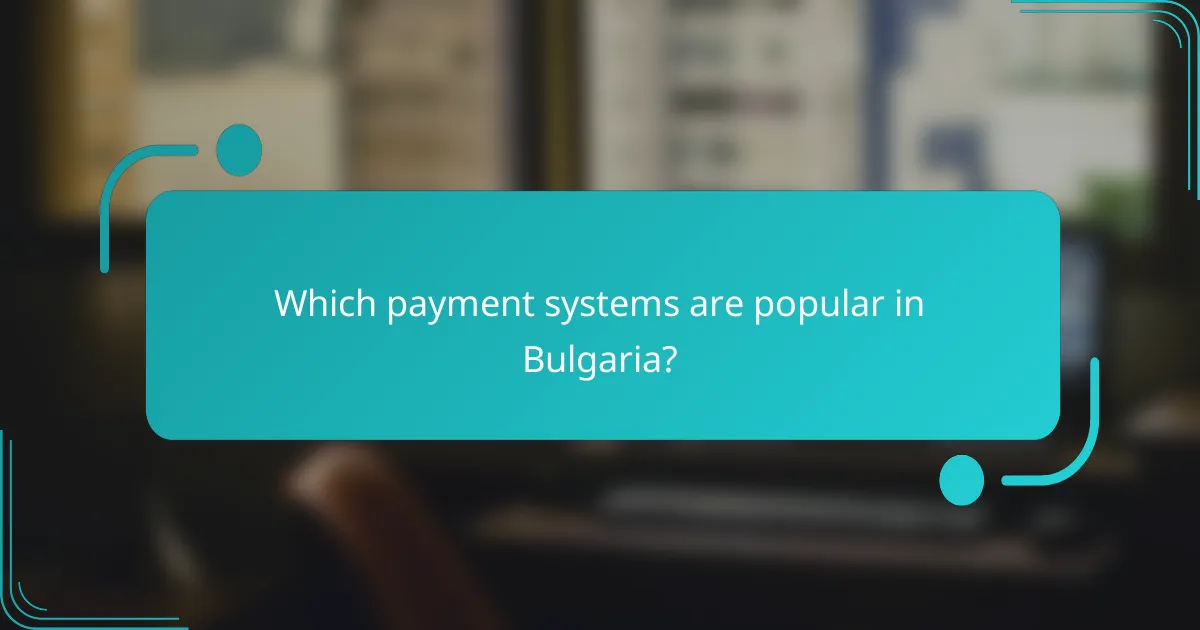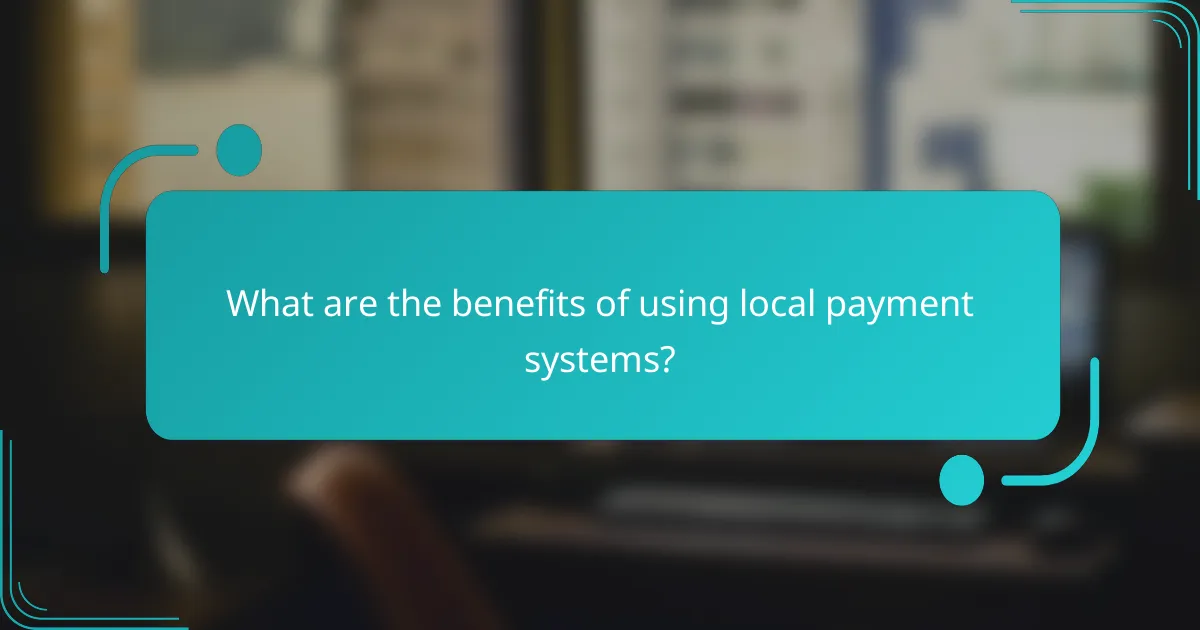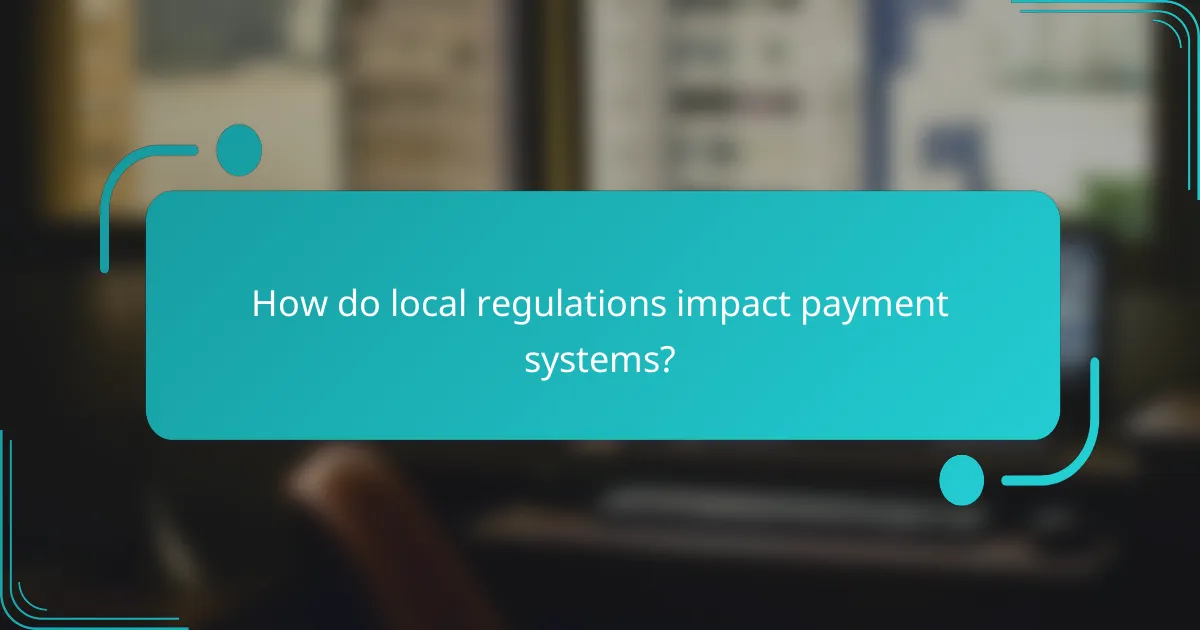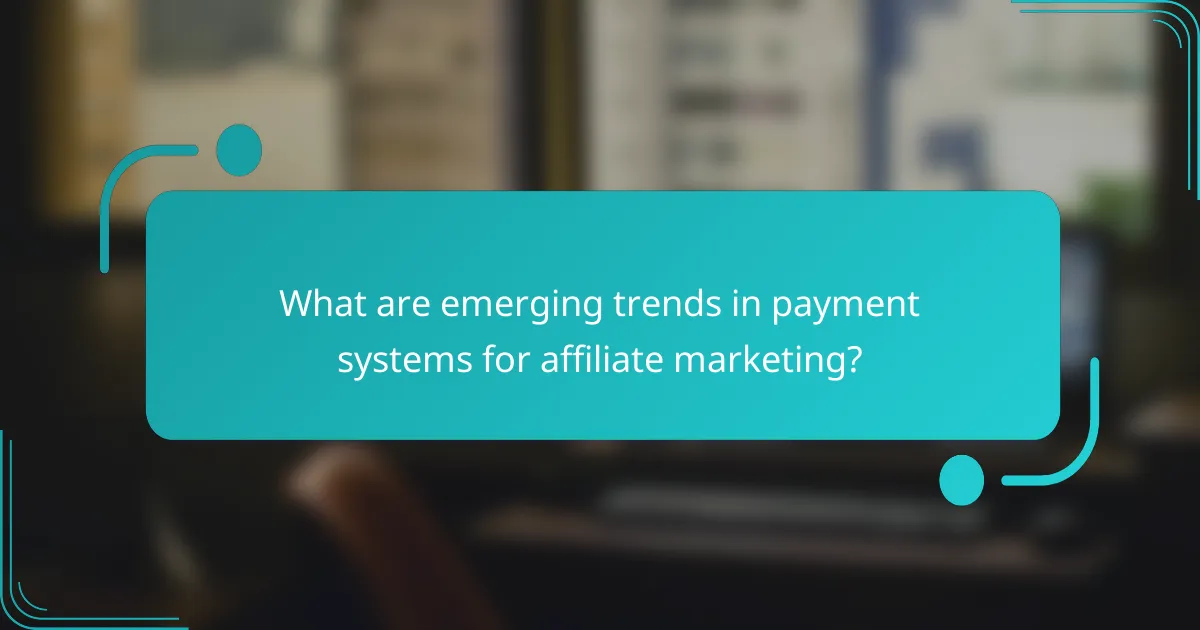Local payment systems are pivotal to the success of affiliate marketing in Bulgaria, enhancing transaction efficiency and aligning with consumer preferences. By facilitating easier payments, these systems not only boost sales but also improve overall performance for affiliate marketers. Notable options like PayPal, ePay.bg, and Stripe cater specifically to local users, offering unique benefits that foster customer trust and reduce costs.

How do local payment systems affect affiliate marketing in Bulgaria?
Local payment systems significantly impact affiliate marketing in Bulgaria by improving transaction efficiency and aligning with consumer preferences. These systems facilitate easier payments, which can lead to higher sales and better overall performance for affiliate marketers.
Increased conversion rates
Utilising local payment systems can lead to increased conversion rates for affiliate marketers in Bulgaria. When consumers can pay using familiar methods, such as bank transfers or local e-wallets, they are more likely to complete their purchases. This familiarity reduces friction during the checkout process.
For example, integrating popular Bulgarian payment options like ePay or PayU can streamline transactions, making it easier for users to finalise their purchases. Affiliates should prioritise these local payment methods to enhance user experience and boost conversion rates.
Enhanced user trust
Local payment systems enhance user trust, which is crucial for successful affiliate marketing. When customers recognise and feel secure using local payment options, they are more inclined to engage with affiliate offers. Trust is built when users know their financial information is handled by reputable local services.
Affiliates should prominently display accepted payment methods on their platforms to reassure potential customers. Highlighting local payment systems can create a sense of security, leading to increased customer loyalty and repeat purchases.

Which payment systems are popular in Bulgaria?
In Bulgaria, several payment systems play a crucial role in facilitating online transactions, especially in affiliate marketing. The most notable among these are PayPal, ePay.bg, and Stripe, each offering unique features and benefits tailored to local users.
PayPal
PayPal is widely recognised in Bulgaria for its ease of use and security features. It allows users to send and receive payments in multiple currencies, making it a convenient option for international transactions.
Affiliate marketers can benefit from PayPal’s extensive user base, as many consumers prefer this method for its buyer protection policies. However, fees can vary, so it’s essential to review the costs associated with receiving payments through PayPal.
ePay.bg
ePay.bg is a local payment system that is particularly popular among Bulgarian consumers and businesses. It supports payments in Bulgarian Lev (BGN) and offers a straightforward integration process for affiliate marketers.
This platform is favoured for its low transaction fees and the ability to handle various payment methods, including bank cards and online banking. Marketers should consider ePay.bg for its local appeal and reliability in processing payments quickly.
Stripe
Stripe has gained traction in Bulgaria as a robust payment processing solution for online businesses. It supports multiple currencies and provides a seamless checkout experience, which can enhance conversion rates for affiliate marketers.
While Stripe offers advanced features like subscription billing and fraud prevention, users should be aware of the associated fees and ensure they comply with local regulations. Its developer-friendly interface makes it an excellent choice for those looking to customise their payment solutions.

What are the benefits of using local payment systems?
Local payment systems offer several advantages for businesses in Bulgaria, particularly in affiliate marketing. They can enhance customer trust, reduce costs, and improve transaction efficiency, making them a preferred choice for both merchants and consumers.
Lower transaction fees
Using local payment systems typically results in lower transaction fees compared to international alternatives. These fees can range from 1% to 3% of the transaction amount, depending on the provider and payment method. By minimising costs, businesses can retain more revenue and offer better pricing to customers.
For example, a local payment processor in Bulgaria may charge a flat fee of 0.5 BGN per transaction, while an international service could charge up to 2 BGN. This difference can significantly impact profit margins, especially for high-volume sales.
Faster payment processing
Local payment systems often facilitate quicker payment processing times, which is crucial for maintaining customer satisfaction. Transactions can be completed in just a few minutes, compared to several days with international systems. This speed enhances the overall shopping experience for users.
Additionally, local systems are more likely to support instant payment notifications, allowing merchants to confirm orders and fulfil them without delay. This efficiency can lead to higher conversion rates and repeat business, as customers appreciate seamless transactions.

How to choose the right payment system for affiliate marketing?
Choosing the right payment system for affiliate marketing in Bulgaria involves assessing transaction costs, integration options, and local preferences. A suitable payment system should minimise fees while ensuring seamless integration with your existing platforms.
Evaluate transaction costs
Transaction costs can significantly impact your affiliate marketing profits. Look for payment systems that offer competitive rates, typically ranging from 1% to 5% per transaction, depending on the service provider and payment method.
Consider both fixed fees and percentage-based fees when evaluating costs. For example, some systems may charge a low percentage but have higher fixed fees, which could be more expensive for smaller transactions.
Consider integration options
Integration options are crucial for ensuring that your payment system works smoothly with your affiliate marketing platform. Look for systems that offer easy integration with popular e-commerce platforms and affiliate software.
Check if the payment system provides APIs or plugins that simplify the setup process. Systems that support multiple currencies, such as BGN and EUR, can also enhance user experience and broaden your market reach.

What challenges do affiliates face with payment systems in Bulgaria?
Affiliates in Bulgaria encounter several challenges with payment systems, primarily related to currency conversion and fraud prevention. These issues can hinder their ability to receive payments efficiently and securely, impacting their overall success in the affiliate marketing landscape.
Currency conversion issues
Currency conversion can pose significant challenges for affiliates operating in Bulgaria, particularly when dealing with international partners. Many affiliates receive payments in foreign currencies like EUR or USD, which may incur conversion fees and unfavorable exchange rates when converted to Bulgarian Lev (BGN).
To mitigate these issues, affiliates should consider using payment processors that offer competitive exchange rates and low fees. Additionally, maintaining a multi-currency account can help streamline transactions and reduce conversion costs.
Fraud prevention measures
Fraud prevention measures are crucial for affiliates in Bulgaria, as they must protect themselves from potential financial losses. Payment systems often implement strict verification processes to combat fraud, which can delay transactions and complicate the payment experience.
Affiliates should be aware of the common fraud prevention techniques, such as two-factor authentication and transaction monitoring. By understanding these measures, affiliates can better navigate payment systems and ensure timely payments while minimising the risk of fraud.

How do local regulations impact payment systems?
Local regulations significantly influence payment systems in Bulgaria, affecting how businesses operate and engage in affiliate marketing. Compliance with these regulations ensures that payment methods are secure, reliable, and accepted by consumers, which is crucial for success in the affiliate marketing landscape.
Compliance with EU regulations
Bulgaria, as a member of the European Union, must adhere to EU regulations that govern payment systems. This includes the Payment Services Directive (PSD2), which enhances consumer protection and promotes competition among payment service providers. Businesses must ensure that their payment systems comply with these regulations to avoid penalties and maintain customer trust.
Affiliate marketers should regularly review their payment processes to ensure compliance with evolving EU standards. This may involve updating payment gateways, ensuring transparency in fees, and providing clear information about transaction processes to consumers.
Data protection laws
Data protection laws in Bulgaria, particularly the General Data Protection Regulation (GDPR), impose strict requirements on how personal data is collected, stored, and processed. Payment systems must incorporate robust data protection measures to safeguard customer information, which is essential for maintaining compliance and building consumer confidence.
Affiliate marketers should implement secure payment systems that encrypt sensitive data and provide clear privacy policies. Regular audits of data handling practices can help identify potential vulnerabilities and ensure adherence to legal requirements, ultimately enhancing the overall security of payment transactions.

What are emerging trends in payment systems for affiliate marketing?
Emerging trends in payment systems for affiliate marketing focus on enhancing transaction speed, security, and user experience. Innovations like digital wallets, cryptocurrency, and localised payment options are reshaping how affiliates and merchants interact financially.
Digital Wallets and Mobile Payments
Digital wallets and mobile payment solutions are gaining traction in Bulgaria, providing affiliates with faster and more convenient transaction methods. Popular platforms like PayPal and local options such as ePay.bg allow users to make quick payments without needing to enter card details each time.
These systems often support multiple currencies, including BGN and EUR, making them versatile for both local and international transactions. Affiliates should consider integrating these payment methods to enhance user experience and potentially increase conversion rates.
Cryptocurrency Adoption
Cryptocurrency is becoming a viable option for affiliate marketing payments, offering benefits like lower transaction fees and enhanced security. Affiliates can leverage cryptocurrencies such as Bitcoin or Ethereum to attract tech-savvy consumers who prefer decentralised payment methods.
However, the volatility of cryptocurrencies can pose risks. Affiliates should weigh the pros and cons, considering whether to accept crypto directly or convert it to local currency promptly to mitigate potential losses.
Localised Payment Solutions
Localised payment solutions are crucial for affiliate marketing success in Bulgaria. Options like cash on delivery or bank transfers cater to local preferences, ensuring that affiliates can reach a broader audience. Understanding the payment habits of Bulgarian consumers can significantly impact conversion rates.
Affiliates should research and implement these localised solutions, as they can enhance trust and convenience for users. Offering multiple payment options can also help in reducing cart abandonment rates.
